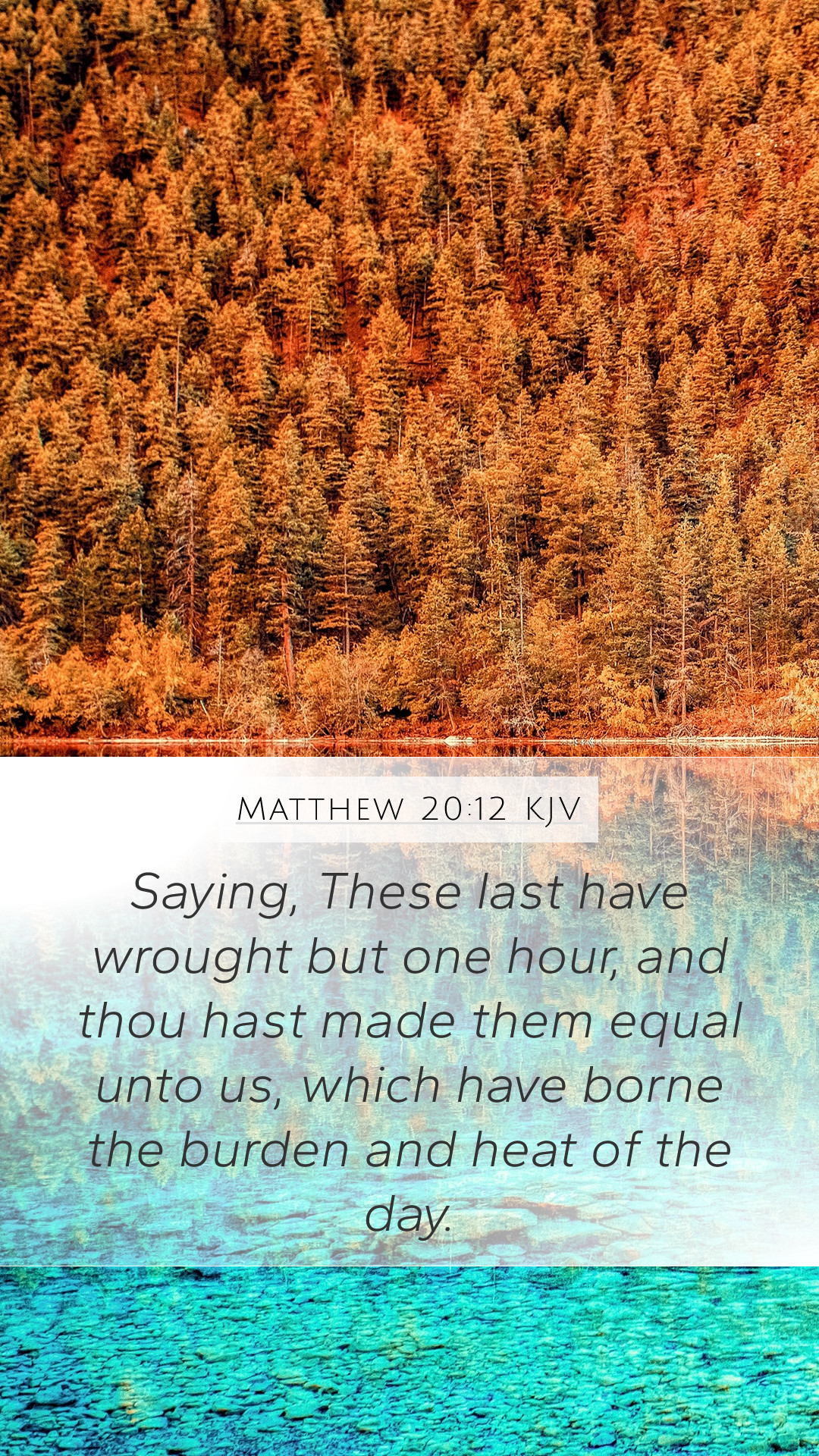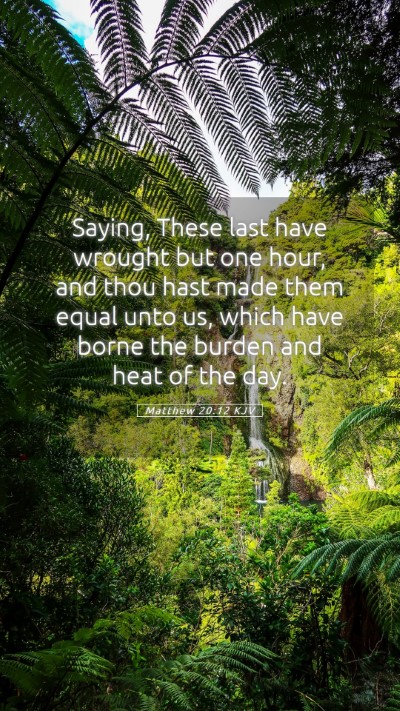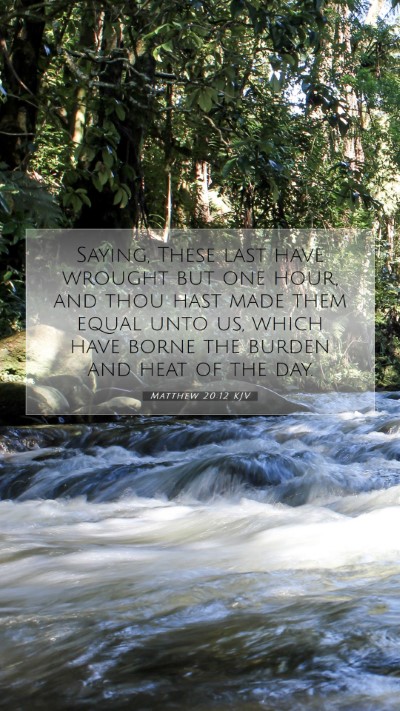Understanding Matthew 20:12
Bible Verse: Matthew 20:12 - "Saying, These last have wrought but one hour, and thou hast made them equal unto us, which have borne the burden and heat of the day."
Overview
The verse in Matthew 20:12 is part of Jesus' parable of the laborers in the vineyard. This teaching illustrates God's grace and the nature of His kingdom, emphasizing that all who work in His vineyard, regardless of how long they have labored, are equal in His eyes. Here, we gather insights from respected Bible commentaries to examine the profound meanings, interpretations, and implications of this passage.
Commentary Insights
-
Matthew Henry's Commentary
Matthew Henry highlights the concept of grace as being sovereign and unconditional. He explains that the laborers who worked only one hour were treated with the same generosity as those who toiled all day. This reflects God’s unmerited favor and challenges our human notions of fairness and justice.
-
Albert Barnes' Notes on the Bible
Albert Barnes points out that the complaint of the laborers is rooted in their misunderstanding of God's justice. He notes that the master of the vineyard dispenses His rewards as He sees fit, teaching that human comparisons and grievances are misplaced when it comes to divine righteousness.
-
Adam Clarke's Commentary
Adam Clarke elaborates on the significance of the parable, arguing that it encapsulates the essence of Christian humility and the importance of recognizing God’s overarching plan. He suggests that each worker, no matter the time of their labor, has equal worth and value to God, thus emphasizing the inclusive nature of Christian salvation.
Thematic Analysis
This verse illustrates several key themes prevalent throughout Scripture:
- Grace: The primary lesson is God's grace, which transcends human understanding.
- Equality: It speaks to God's egalitarian view of humanity in attaining salvation.
- Labor in God's Kingdom: The emphasis on working in the vineyard symbolizes the varied paths and contributions in faith.
Cross References
This verse relates to several other Scriptures:
- Matthew 19:30 - "But many that are first shall be last; and the last shall be first."
- Luke 15:29-30 - The complaint of the older son about the treatment of his brother reflects similar themes.
- Romans 2:6-11 - Discusses God’s impartiality in judgement.
Applications to Daily Life
As we delve into the meaning of Matthew 20:12, it encourages believers to:
- Reflect on their own attitudes towards service and reward in the church.
- Recognize the worth of others in the body of Christ, regardless of their tenure in faith.
- Embrace the grace of God by understanding that our efforts can never earn His favor, as it is freely given.
Conclusion
In understanding Matthew 20:12 through these commentaries, we find rich teachings that confront our notions of justice and adequacy in relation to God’s kingdom. This verse, along with its contextual readings, serves as a powerful reminder of the grace bestowed upon all believers.
Further Study Resources
For those seeking to deepen their understanding, consider joining bibli study groups or utilizing bible study tools and online bible study resources that offer structured lessons on topics such as grace, equality, and divine love.


